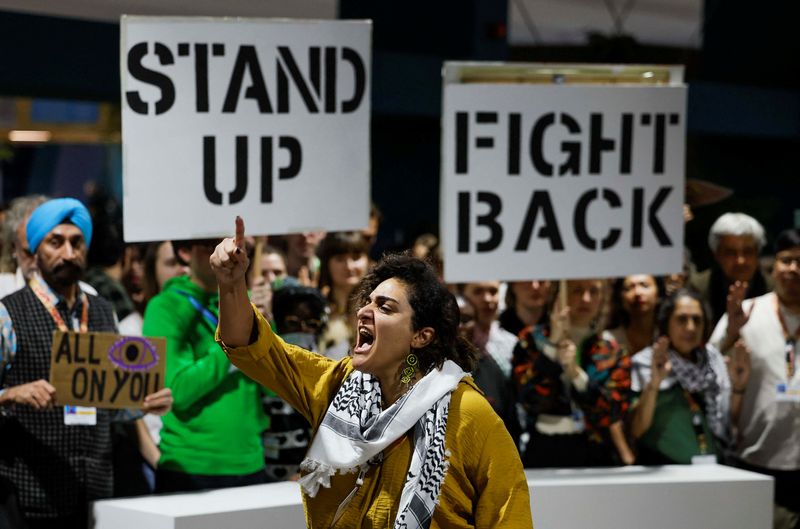By Virginia Furness, Kate Abnett and Simon Jessop
BAKU (Reuters) – Countries agreed on Saturday at the COP29 climate conference on rules for a global market to buy and sell carbon credits that proponents say will mobilize billions of dollars for new projects to help fight global warming.
The agreement, which came about ten years after the start of international talks on market formation, revolved around the question of how to ensure the credibility of the system so that it can reliably lead to a reduction in greenhouse gas emissions that contribute to climate change.
Carbon credits are created by projects such as planting trees or setting up wind farms in a poorer country, which receive one credit for every ton of emissions they reduce or suck from the atmosphere. Countries and companies can buy these credits to help achieve their climate goals.
After reaching an agreement early in the two-week conference that would allow a centralized U.N. trading system to launch as early as next year, negotiators spent much of their time in Azerbaijan trying to hammer out to the details of a separate bilateral system for countries. trade directly.
Details to be worked out included how a registry to track credits would be structured, as well as how much information countries would have to share about their deals and what should happen if projects go wrong.
One of the strongest voices was the European Union, which called for stricter UN oversight and greater transparency over trade between countries, while the United States sought more autonomy over the deals it makes.
The COP29 presidency had published a draft agreement ahead of the agreement proposing to allow some countries to issue carbon credits through a separate registration system, without tantamount to a UN seal of approval.
The final text was a compromise after the EU arranged registry services for countries that cannot afford to set up their own ledgers for issuing and tracking credits, while the US ensured that a transaction merely recorded in such a registry registered does not qualify as a transaction. UN approval of appropriations.
By agreeing that the registry would not determine the quality of a credit or endorse issuers, the EU had “done its utmost to accommodate the US,” said Pedro Barata, who led the talks for the nonprofit Environmental Defense Fund followed.
“It’s still a viable international trading system… even if some people might say it has no teeth.”
Although strengthening a global market for carbon credits was a key focus of the Baku talks, bilateral trade began in January when Switzerland bought credits from Thailand and dozens of other countries had already signed agreements to transfer credits.

But those deals remain limited and finding the right balance and a clear set of rules to ensure integrity and transparency without limiting countries’ ability to participate should lead to an uptick in deal flow.
IETA, a business group that supports an expansion of carbon credit trading, has said a U.N.-backed market could be worth $250 billion a year by 2030, and help offset an additional 5 billion tons annually CO2 emissions.


